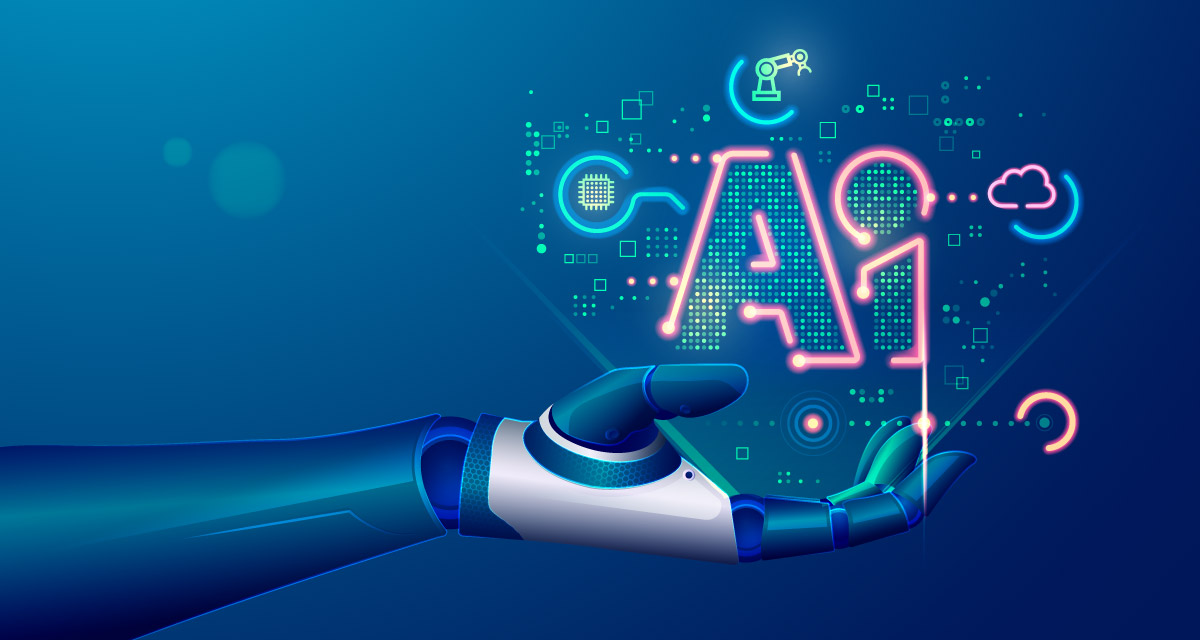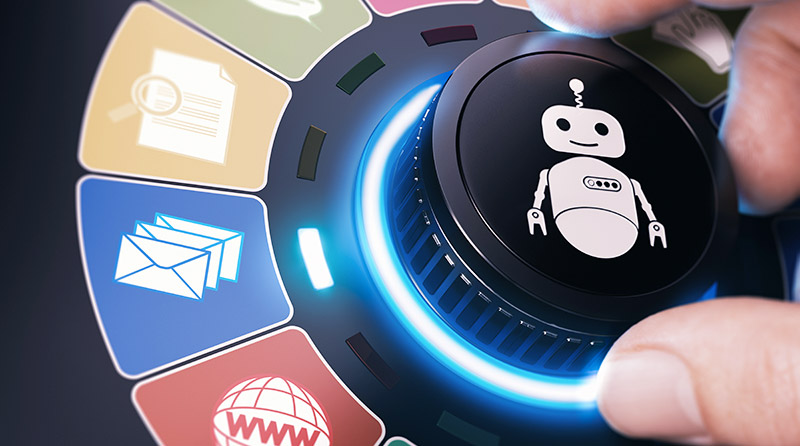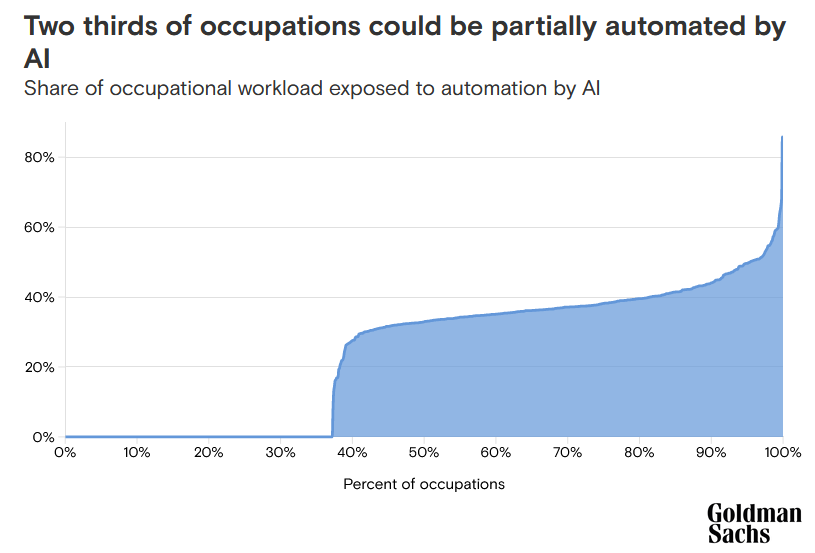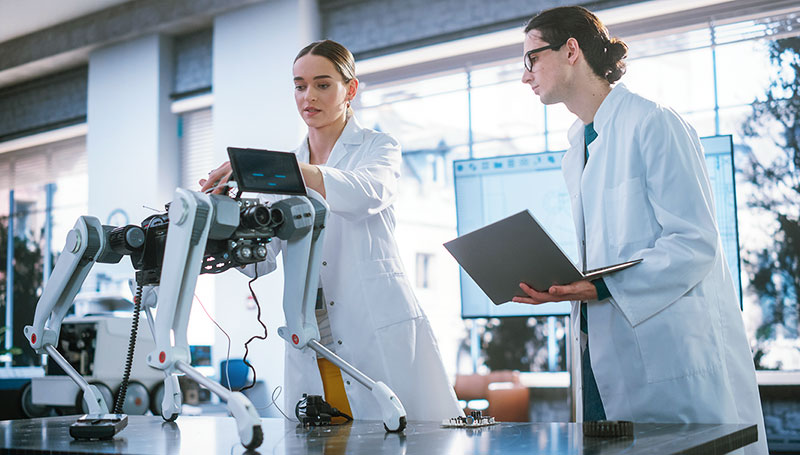
Artificial Intelligence (AI) has become a driving force behind technological advancements, shaping industries and transforming how we live and work. AI is rapidly evolving and understanding its impact is essential for staying competitive.
This article explores AI's exciting developments and potential impact on various sectors, the latest AI trends and how they are reshaping industries worldwide. Additionally, we explore innovative AI applications, including chatbots, virtual assistants, and autonomous vehicles.
Whether you're an industry professional looking to stay ahead of the curve, or simply curious about the future of AI, this article will provide valuable information.
In 2023, the global AI market size was close to $208 billion. By 2030, the market size is expected to reach nearly $2 trillion *
* Statistica
Current Trends in AI Development
Recent AI advancements include Natural Language Processing (NLP) which is one trend that is revolutionizing the way machines understand and interpret human language. Through NLP, machines can process and analyze vast amounts of text data, enabling applications like sentiment analysis, language translation, and voice recognition. This technology has found applications in various industries, from customer service chatbots to voice assistants like Siri and Alexa.
Another trend is Machine Learning, which involves training machines to learn from data and make predictions or decisions without being explicitly programmed. Machine learning algorithms use huge amounts of data to identify patterns, make accurate predictions, and automate complex tasks. This technology has found applications in areas such as healthcare, finance, and manufacturing, where it can optimize processes, detect anomalies, and improve decision-making.
Robotic Process Automation (RPA) allows businesses to automate repetitive and rule-based tasks, increasing efficiency and reducing costs. In industries like manufacturing and logistics, robots are being used for tasks such as assembly line operations, inventory management, and order fulfillment.

Innovations in AI Technology
Artificial Intelligence is revolutionizing industries across the board, reshaping how businesses operate and enhancing the quality of our daily lives.
In healthcare, AI is proving invaluable for tasks ranging from medical imaging analysis to personalized medicine. Machine learning algorithms can accurately detect abnormalities in medical images, aiding doctors in diagnoses. Additionally, AI-powered virtual assistants offer personalized healthcare recommendations and patient reminders, improving overall patient care.
Similarly, in the finance sector AI algorithms analyze financial data for fraud detection, credit scoring, and algorithmic trading. Moreover, AI-driven chatbots streamline customer service, providing quick and tailored assistance.
Manufacturing industries are benefiting from AI-driven automation, which enhances production processes and quality control. Predictive maintenance systems powered by AI analyze sensor data to preempt equipment failures, minimizing downtime and costs.
Retail experiences a significant AI impact through personalized product recommendations and efficient customer service. AI algorithms on e-commerce platforms tailor product suggestions, increasing sales and customer satisfaction. In-store AI applications manage inventory, monitor shelves, and provide personalized shopping experiences through facial recognition.

The Impact of AI on Job Market and Employment
The rise of AI sparks concerns about its job market impact. While it may automate tasks and replace some roles, it also creates new opportunities. Studies suggest a shift in job roles rather than total loss, with routine tasks more likely to be automated, while jobs that require creativity, critical thinking, and emotional intelligence will remain in demand.
Industries like manufacturing may see AI replacing repetitive tasks and creating new roles in maintenance, programming, and data analysis. AI boosts productivity by automating routine tasks, allowing humans to focus on complex activities.
Adaptation is key for individuals, with skills like data analysis and programming becoming essential in AI-driven sectors. Lifelong learning and upskilling will become crucial to stay relevant and competitive in the job market.

Source: Goldman Sachs Research
The Future of AI: Predictions and Possibilities
As technology advances, AI is set to become more integral to daily life. Key predictions include:
1. Advancements in Natural Language Processing
NLP will improve, leading to more intuitive human-machine interfaces.
2. Increased Automation
AI-driven automation will enhance efficiency, freeing humans for more complex tasks and fostering innovation.
3. Enhanced Personalization
AI algorithms will offer highly targeted recommendations, boosting customer satisfaction.
4. Advancements in Robotics
AI-powered robots will become more versatile, augmenting human capabilities across industries.
5. Ethical and Responsible AI
There will be more emphasis on transparency and fairness to mitigate biases and unintended consequences.
Additionally, AI's role in education and its potential for addressing global challenges like climate change and sustainability are promising areas for future development.
Organizations estimate that 34% of all business-related tasks today are performed by machines *
* World Economic Forum
Industries Most Affected by AI
While AI stands to influence all sectors, certain industries are poised for significant transformation:
1. Healthcare
AI enhances diagnostics, treatment plans, and patient care through technologies like medical imaging analysis and personalized medicine.
2. Finance
AI streamlines decision-making, automates processes, and improves customer experiences, utilizing algorithms for data analysis and virtual assistants for personalized support.
3. Manufacturing
AI-driven robotics and automation systems optimize production processes, from assembly lines to predictive maintenance, reducing costs and improving efficiency.
4. Retail
AI personalizes shopping experiences, manages inventory, and provides customer support through recommendation systems, chatbots, and virtual assistants.
5. Transportation
Autonomous vehicles driven by AI promise safer, more efficient transportation, leveraging algorithms and sensors for navigation and decision-making.
6. Education
AI technologies enhance learning experiences and outcomes through personalized platforms, intelligent tutoring, and adaptive assessments.

Embracing the Future of AI
The future of Artificial Intelligence is promising, with exciting developments and innovations reshaping industries and transforming how we live and work. AI is revolutionizing processes and unlocking new possibilities from healthcare to finance, manufacturing to retail.
By staying up-to-date with the latest AI trends and innovations, businesses can gain a competitive edge and drive innovation. Embracing technologies like natural language processing, machine learning, and robotic automation can streamline processes, improve efficiency, and enhance customer experiences.
While AI may lead to job displacement in some sectors, it also creates new opportunities and roles. Adapting to the changing job market and acquiring in-demand skills will be crucial to remain relevant and competitive.
Let's embrace the future of AI and unlock its transformative potential.